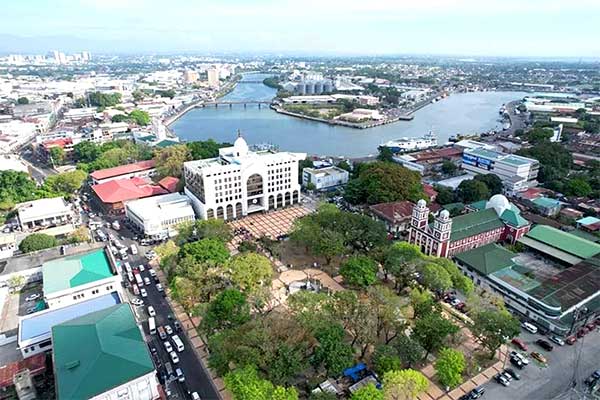
By Francis Allan L. Angelo
Iloilo City’s economic landscape has been hit by a perfect storm of inflationary pressures following a significant increase in real property taxes, according to the Institute of Contemporary Economics (ICE).
The local economy is grappling with soaring residential rental costs, potential commercial rent hikes, and new parking fees, all converging with an increase in the minimum wage that may force many businesses to scale back operations or close altogether.
In a statement, ICE described the situation as dire.
“Much as we had hoped that Iloilo City would ride out the impact of the real property tax increase, it now seems that such was an exercise in futility. Residential rentals had another major spike in October as property owners pass on the burden of the tax to renters. It is likely that commercial rents will soon follow, if they haven’t already done so,” the Iloilo-based think tank explained.
October 2024 data from the Philippine Statistics Authority (PSA) corroborates ICE’s concerns, showing that housing rental inflation in Iloilo City surged by 8.4% year-on-year.
This figure dwarfs the national average of 2.1% and highlights the intense economic strain in the city.
The inflation disparity between Iloilo City and surrounding areas is notable, with the province (excluding the city) showing a housing rental inflation rate of 0.0% for the same period.
Further exacerbating the situation, previously free parking spaces in the city have started charging fees, adding to the burden on residents and businesses alike.
For one, the management the Boardwalk Leisure area began charging fees on its roadside parking provisions to raise money for higher Real Property Taxes paid to the Iloilo City government under Mayor Jerry Treñas.
“Without the monetary tools that the BSP [Bangko Sentral ng Pilipinas] has to cool down inflationary pressures, LGU [local government unit] officials are severely limited on what they can do,” ICE said pointing out the challenges faced by local policymakers.
The economic pressures come at a time when Iloilo City is already grappling with an annual inflation rate that reached 4.1% in October, significantly higher than the national average of 2.3%.
The situation paints a stark contrast between Iloilo and the rest of the country, where inflationary trends have been more moderate.
Adding to the strain is the recent minimum wage increase, which ICE predicts will push many businesses into tough decisions.
“With the additional impact of a significant minimum wage hike, local businesses will likely be forced to lay off workers, reduce work hours, and some of them will close,” it added said.
The implication is clear: without intervention, the city risks seeing job losses and economic contraction.
ICE also outlined the long-term economic cost, suggesting that the P400 million expected from the real property tax hike could translate into billions in lost economic growth.
“At the very least, Iloilo City will not achieve the economic expansion that it could otherwise have had,” it added. The cumulative impact of these factors, he warned, could lead to an “inflationary spiral” that might have been avoided with different policy choices.
“In tennis terms, we are being victimized by unforced errors,” a nod to the avoidable nature of some of these economic challenges.



















